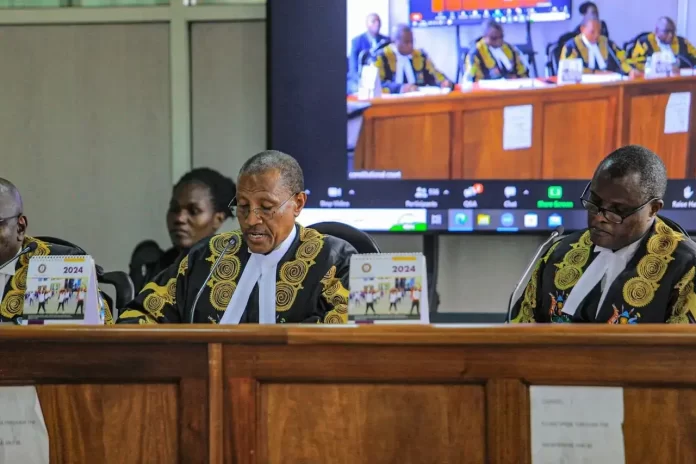
Earlier this week, on April 3, 2024, the Constitutional Court delivered its decision in the Consolidated Petitions No. 14, 15, 16, and 85 of the Anti-Homosexuality Act 2023 and declared that it complies with the Constitution of Uganda except in only four aspects.
This was received with a lot of excitement among the majority of the citizens and their parliamentary representatives, because it acts as a deterrent to the further spread of the vice.
The ruling is part of a growing anti-gay crackdown across Africa. In February 2024, Ghana passed stringent anti-gay legislation, intensifying restrictions on the rights of LGBTQ people, which leaves a series of concerns about whether it is the end of a beginning or the beginning of the end to acts of same-sex relationships in Uganda and Africa at large.
Home-sexuality is unheard of in any sounding community in Uganda, a position held by the majority of the population, but the vice of homosexuality and same sex relationships have just been steadily evolving amongst African communities, Uganda inclusive.
This has mainly been because of the increased global funding by the LGBTQ movement and NGO’s, which has facilitated the recruitment and orientation of young people into same-sex relationships from schools, tertiary institutions, and urban dwellers, as well as via publicized movies and films by LGBTQ actors and funders.
The deputy speaker of Parliament, Rt. Hon. Thomas Tayebwa, while presiding over the April 3, 2024, parliamentary session, praised the Constitutional Court for the landmark ruling and also the parliament for having overwhelmingly passed the Act.
The quorum and procedure were rightly followed as per the Constitutional Court. However, since the enactment of the Ant-Homosexuality Act and subsequent assentation by the president into law, Uganda has experienced several shortfalls with its funders and the USA government over what they termed draconian law. Will these grievances end? They are most likely to get worse!
In response to Uganda’s Anti-Homosexuality Act and persistent human rights abuses, the US government also emphasized the toughest decisions in retaliation, which include striking Uganda from the beneficiaries of the African Growth and Opportunity Act (AGOA), expanding visa restrictions for Ugandan government officials, a reduction in direct government funding, a business advisory issued on October 23, 2023, highlighting increased risks, a travel advisory warning US citizens, advocacy for World Bank safeguards, and sanctions imposed on Uganda Prison’s boss, Johnson Byabashaija.
The largest number of the Ugandan population, just like the largest number of legislators, are all cheering the court’s stance on homosexuality. But according to veteran journalist Andrew Mwenda and human rights activist Nicholas Opiyo, the judgement will be challenged on appeal in the Supreme Court.
Could the Supreme Court of Uganda reverse the Constitutional Court’s position? Well, all I can say is that ‘it’s not yet over until it’s over’
These could intensify and exert more pressure and restrictions on the Ugandan government, its officials, and its citizens as retaliation for this law.
All these leave serious positions for a broader discussion in the mini-time on whether it is the end of a beginning or the beginning of the end of homosexuality acts in Uganda.














